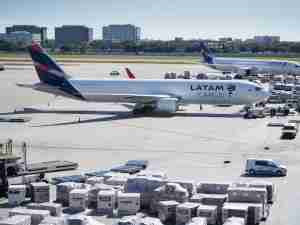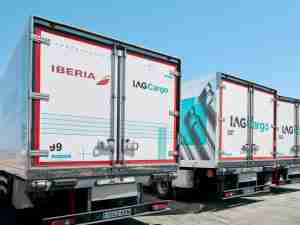Airbus SE cut its delivery goal and slowed a ramp up in production of its best-selling narrow-body model as supply-chain issues afflicting everything from engines to microchips show no sign of easing.
The world’s biggest planemaker now aims to hand over around 700 aircraft in 2022, compared with an earlier target of 720, it said in a statement Wednesday. A build rate of 65 a month for the A320 single-aisle family previously targeted for next summer won’t now be achieved until early 2024. The stock fell the most since March in Paris trading.
‘We’ve come to the conclusion that the supply chain was not going to be able to support the previous plan,” Chief Executive Officer Guillaume Faury said on a media call. “It would have been difficult to catch up in the second half.”
The revision comes a week after Faury sounded more optimistic at the Farnborough Airshow that Airbus had reached the bottom of its supply-chain issues, and that past years showed the company can bounce back from a difficult first half. While the revisions won’t hit Airbus’s short-term financial performance, they indicate significant challenges in boosting output in an economic environment beset by labor and materials shortages.
A slower ramp-up will also make it harder for Airbus to win new business, with an A320 backlog that means it effectively has no new slots until 2027. Airbus shares declined as much as 7% to 99.17 euros. Shares are down more than 11% this year.
Airbus posted adjusted earnings before interest and tax of 2.64 billion euros ($2.7 billion) for the first half, 2% lower than a year earlier. Analysts had forecast a profit of 2.55 billion euros, based on data compiled by Bloomberg.
The figure should reach 5.5 billion euros for the whole of 2022, up from 4.9 billion euros in 2021. Free cash flow is expected to amount to 3.5 billion euros before customer financing and acquisitions, about equal to last year.
‘Losing Momentum’
Airbus is “losing a bit of momentum as macro conditions get tougher,” said Agency Partners analyst Sash Tusa. It’s “only a matter of time” until the target of rate 75 in 2025 also slips, most likely to mid-2026, he said.
Faury said the planemaker still plans to build 75 A320s a month in 2025 and is evaluating the possibility of increasing build rates for wide-body aircraft, a segment that’s been slow to recover from the coronavirus crisis but is now attracting increasing order interest.
The pressure to lift narrow-body production was evident at this month’s Farnborough International Airshow southwest of London, where Airbus had a lackluster sales performance as rival Boeing Co., which has smaller backlogs, announced blockbuster deals from carriers like Delta Air Lines Inc.
Engine Shortage
Faury revealed at the expo that Airbus had 26 planes built but waiting on the tarmac without engines at the end of June. He said Wednesday that Airbus hopes to bring this number down to zero by the end of the year, and doesn’t see any orders at risk from the delivery delays.
Safran SA CEO Olivier Andries said on a media call Thursday that engine maker CFM, in which Safran partners with General Electric Co., hopes to begin reducing delays this summer but that it will likely take until the end of 2023 to fully tackle the issue. He welcomed Airbus’ decision to delay the A320 ramp-up, saying the manufacturer is “adapting to the reality of the situation.”
Airbus has close to 100 undelivered aircraft in total lacking a variety of components, after failing to reduce the number down significantly since last year. It’s also contending with energy shortfalls amid fallout from Russia’s invasion of Ukraine and is preparing for potential curbs to its gas supply.
Rising Inflation
The performance of the defense and space division was hit by rising inflation as well as sanctions linked to the war, with earnings before interest and tax 32% lower than the previous year. Airbus did manage to remarket some commercial aircraft it was unable to deliver due to export curbs, and got a better price than expected, Chief Financial Officer Dominik Asam said.
Airbus also took a charge of 200 million euros against its A400M military-transport program, again due to inflation, according to the statement, which was published after the close of trading.
Boeing Cash Boost
Boeing also published first-half results Wednesday that showed it turned cash flow positive in the second quarter after stepping up deliveries of its 737 Max, the chief global rival to the A320, a result that puts it on track to generate annual cash for the first time since 2018.
Revenue and the core loss per share were both worse than expected, however, extending the US company’s record of missing consensus earnings estimates in all but one quarter since the start of 2021. The stock closed little changed.








